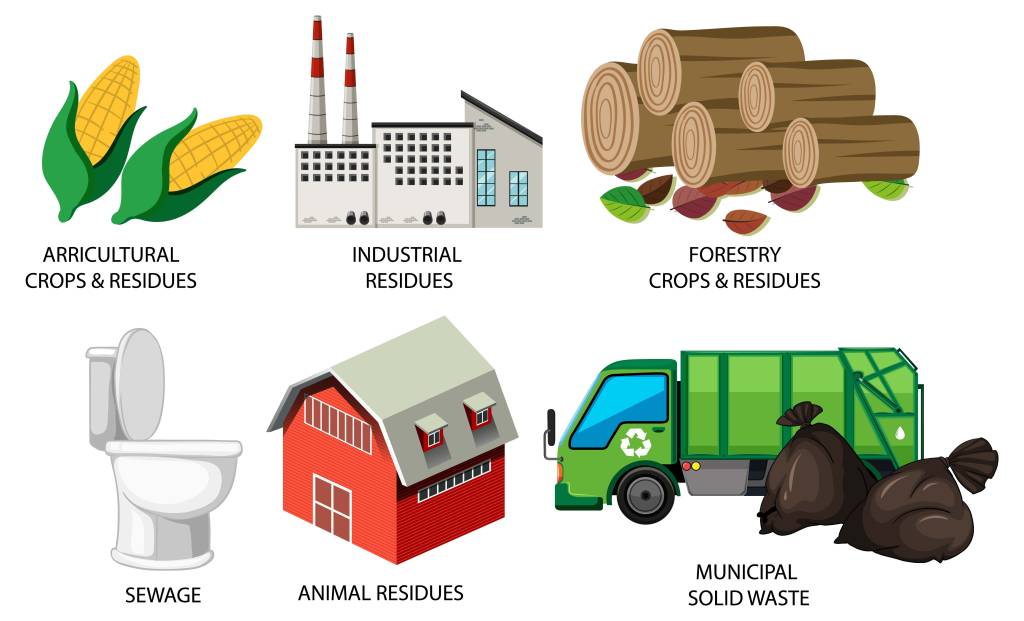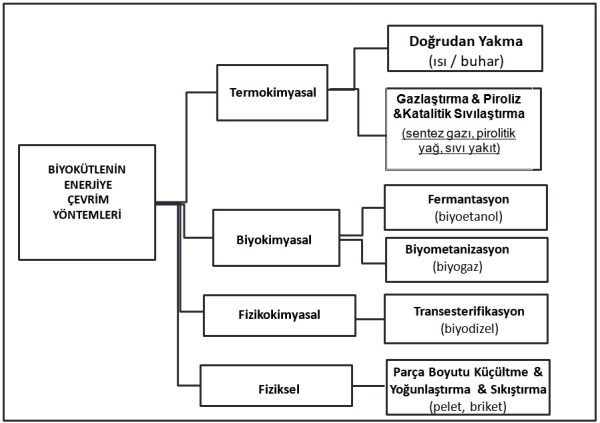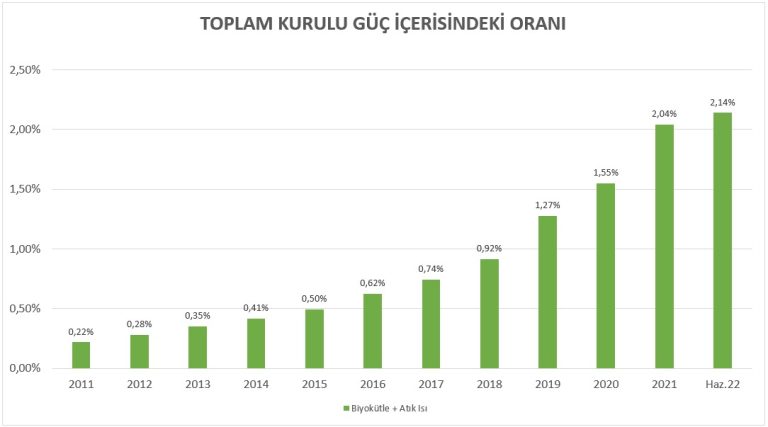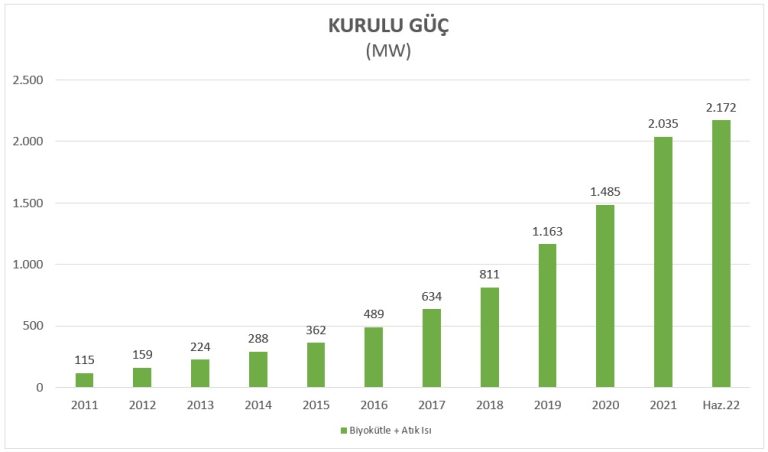
Biomass energy is at the forefront of sustainable energy sources that can be harnessed without causing environmental pollution. It is considered a suitable and important energy source due to its inexhaustible nature, accessibility in various regions, and its potential to contribute to socio-economic development, especially in rural areas.
Agricultural and forestry waste constitute the most significant potential resource for biomass. The limited nature of fossil fuels and their adverse environmental impact have made biomass utilization increasingly important in addressing energy challenges.
Biomass
As a demonstration of its commitment to renewable energy sources, CORDEL ENERGY also offers biomass energy solutions. Biomass energy is a renewable energy source obtained by burning organic materials. CORDEL ENERGY aims to contribute to a sustainable future by harnessing the potential of biomass energy.
Biomass Services Offered by CORDEL ENERGY
![]() Biomass Boiler Installation: CORDEL ENERGY installs biomass boilers of various capacities for homes, businesses, and industrial facilities. These boilers generate heat and electricity by burning wood chips, pellets, briquettes, and other biomass sources.
Biomass Boiler Installation: CORDEL ENERGY installs biomass boilers of various capacities for homes, businesses, and industrial facilities. These boilers generate heat and electricity by burning wood chips, pellets, briquettes, and other biomass sources.
![]() Biomass Fuel Supply: CORDEL ENERGY provides high-quality and sustainable biomass fuel supply services to its customers. The company supplies various types of biomass fuels, helping customers choose the most suitable fuel for their needs.
Biomass Fuel Supply: CORDEL ENERGY provides high-quality and sustainable biomass fuel supply services to its customers. The company supplies various types of biomass fuels, helping customers choose the most suitable fuel for their needs.
![]() Biomass Energy System Design: CORDEL ENERGY designs customized biomass energy systems tailored to the specific needs and characteristics of our clients’ facilities. These systems are engineered to achieve maximum efficiency and energy savings.
Biomass Energy System Design: CORDEL ENERGY designs customized biomass energy systems tailored to the specific needs and characteristics of our clients’ facilities. These systems are engineered to achieve maximum efficiency and energy savings.
![]() Biomass Energy System Maintenance and Repair: CORDEL ENERGY offers periodic maintenance and repair services to ensure the long-term and trouble-free operation of biomass energy systems.
Biomass Energy System Maintenance and Repair: CORDEL ENERGY offers periodic maintenance and repair services to ensure the long-term and trouble-free operation of biomass energy systems.
![]() Consulting Services:CORDEL ENERGY also provides consulting services to its customers regarding biomass energy. Within the scope of these services, the company informs its customers about the benefits of biomass energy, installation costs of biomass systems, and government incentives.
Consulting Services:CORDEL ENERGY also provides consulting services to its customers regarding biomass energy. Within the scope of these services, the company informs its customers about the benefits of biomass energy, installation costs of biomass systems, and government incentives.
Benefits of CORDEL ENERGY’s Biomass Energy Systems:
![]() Sustainability:Biomass energy is a renewable energy source that does not contribute to greenhouse gas emissions. As a result, it helps you contribute to a sustainable future.
Sustainability:Biomass energy is a renewable energy source that does not contribute to greenhouse gas emissions. As a result, it helps you contribute to a sustainable future.
![]() Energy Independence: Biomass energy is a domestic energy source. This enables you to reduce your dependence on energy imports and ensure your country’s energy security.
Energy Independence: Biomass energy is a domestic energy source. This enables you to reduce your dependence on energy imports and ensure your country’s energy security.
![]() Lower Operating Costs:Enjoy reduced energy costs with biomass energy. Biomass offers lower operating costs compared to traditional energy sources.
Lower Operating Costs:Enjoy reduced energy costs with biomass energy. Biomass offers lower operating costs compared to traditional energy sources.
![]() Environmental Friendliness:Biomass energy promotes environmental protection by recycling waste and forest products.
Environmental Friendliness:Biomass energy promotes environmental protection by recycling waste and forest products.
![]() Boosting Local Economies:Biomass energy stimulates local economies by supporting agriculture and forestry.
Boosting Local Economies:Biomass energy stimulates local economies by supporting agriculture and forestry.
1- Agricultural biomass resources;
- Oilseed plants (canola, sunflower, soy, etc.)
- Sugar and starch plants (potato, wheat, corn, sugar beet, etc.) • Fiber plants (flax, hemp, sorghum, miscanthus, etc.)
- Vegetable residues (branches, stalks, straw, roots, bark, etc.)
2- Biomass Resources Obtained from Forests and Forest Products
- Forest and forestry industry waste and residues, energy forests, energy plants.
3- Animal Biomass Resources
- Feces of cattle, sheep and poultry, slaughterhouse waste and wastes generated during the processing of animal products.
4- Biomass Resources Obtained from Urban and Industrial Wastes
- Biological origin industrial wastes, municipal wastes, sewage sludge.
Different fuel types can be produced from biomass resources by applying the following conversion methods.

Our Biomass Energy Potential
According to the Biomass Energy Potential Atlas (BEPA) data prepared by our Ministry to determine the biomass energy potential, the total economic energy equivalent of our waste that can be collected is estimated to be approximately 3.9 MTEP/year.
As of the end of June 2022, the installed capacity based on biomass and waste heat energy was 2,172 MW, representing 2.14% of the total installed capacity. The changes in installed capacity over the years and its share in the total installed capacity are shown in the following graphs.


